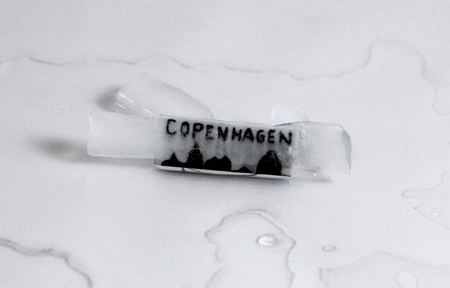
Is 2015 the new Copenhagen? The Copenhagen syndrome
On a micro level, Doha has seen a potentially troubling dynamic becoming further entrenched: the circling of calendar dates at which a future grand bargain is to take place. This risks eroding trust in the entire process, particularly with Copenhagen still casting a long shadow.
The 2009 talks in Copenhagen had taken on an almost mythical narrative as the place where the ship would be righted once and for all. Its relative failure created a backlash, and demonstrated that seemingly well-established plans in the climate change sector remained hostage to international trends and moods in a range of sectors.
Subsequent meetings in Cancun and Durban cooled down key climate debates by picking low-hanging fruits and making incremental progress on ostensibly achievable goals. This allowed the UNFCCC process to proceed with modest successes and thus avoid the cynicism and melancholy that followed Copenhagen.
Events at Doha raise the question of whether these recent softly-and-slowly approaches have fallen out of favour. The UNFCCC process now targets the 2015 climate change talks for a series of paramount decisions that will notionally usher in a new era of climate change response. It is in 2015 that "binding" emissions targets will be set for key high-emitting countries, essential bargains will be struck between developing and developed states, and the question of what countries belong where in the climate discourse and framework re-evaluated.
This vision gives pause to those still smarting from Copenhagen's failures. It would appear that Doha has doubled down on the UNFCCC proclivity for stop-gap measures meant to bridge the time between the present and some putative future in which political will might be more forthcoming.
The process paradox
Ambition and urgency along with incremental and at times piecemeal efforts both appear essential, if increasingly at odds with one another. Calls for patience and cautious optimism argue through various forms that Rome was not built in a day, and that facing climate challenges requires long-term diligence. Many scientific and policy voices, meanwhile, continue to spell out climate challenges, and the inadequacy of efforts to address them in increasingly stark terms.
Solutions to this process conundrum are far from apparent. The emphasis on strict lines between developed and developing countries continue to be contentious. Conversations about blurring these lines saw little movement in Doha as efforts to keep the climate architecture alive took centre stage. The toothlessness of "binding agreements" should also be all too clear, and new approaches could either make censuring options apparent or move away from the obsession with binding agreements altogether. A robust mix of new metrics for emissions measurement, including through per-capita and per-unit of gross domestic product (GDP) and industrial activities, should be embraced.
Most importantly for any such efforts, however, is that UNFCCC participants continue to converge on overarching processes and strategies. This calls for a sober look at past failures, current trajectories and the connections that currently bind them.
This article was republished with permission from the Centre for Non-Traditional Security (NTS) Studies, S. Rajaratnam School of International Studies (RSIS). The original article, which first appeared in January 2013.
BY : J Jackson Ewing and Gianna Gayle Amul, RSIS Centre for Non-Traditional Security (NTS) Studies